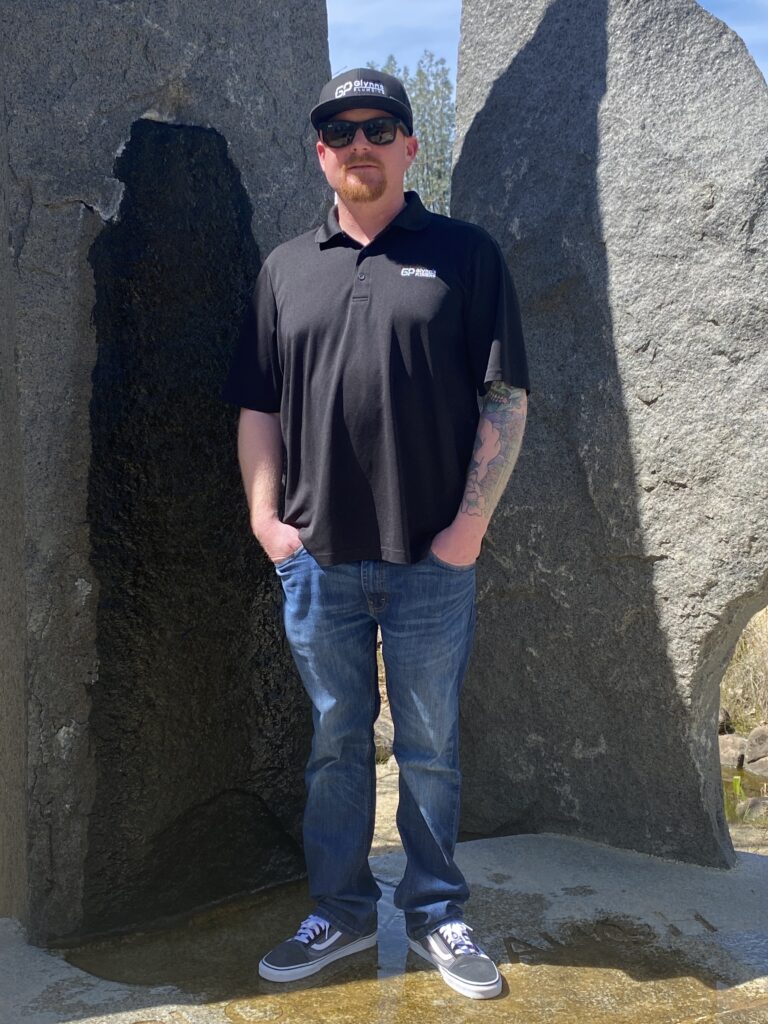“You’re Dead to Me.” – The Gordon Glynn Story
When it comes to petitioning the Almighty on behalf of their recalcitrant children with serious chemical dependencies, desperate mothers call for desperate measures. And the mother of former pro skateboarder and TV star, Brandon Novak, was desperate.
No less so, was the mother of Gordon Glynn, then a California teen who was neither famous like Novak, or an “up-and-coming” anybody. He was just a kid who like many of his footloose and fancy-free peers, liked to do two things: skateboard and party…a lot.

Both mothers were at the point of no return—begging God for divine intervention…of any kind. When pleading with God about her son, Brandon Novak’s mother pleaded with the Almighty to “Cure him, kill him, or kill me. Though she had not given up praying, Linda Glynn issued a no less shocking “You’re dead to me” farewell to her son.
“I’m done. I’m writing you off…as if you are dead. Because I just can’t do this anymore. I can’t be worrying about you. Every time my phone rings, I think it’s going to be the cops telling me that your son died due to overdose.”
Face Plants
Gordon’s descent into drugs was not surprising for the skateboarding culture he inhabited in the central California region where he was raised. As it did for fellow Californian, Brandon Novak, drugs flowed freely. And in a peer culture of unconditional acceptance—with no parents to intervene free-wheeling teens do “face plants” into full blown addiction with shocking regularity.
Looking back, the now 34-year-old Gordon believes it was the combination of his father committing suicide when he was nine, and his taking up skateboarding where he could stay out “until the streetlights turned on,” that made him slip easily into the “I get high with a little help from my friends” lifestyle. As a subculture, skaters value creativity, risk and freedom. There are “no referees, no penalties, no set plays.” And since his mother, who was raising three other children alone, imposed little-to-no structure on her son, he enjoyed his freedom from any sort of constraints by smoking weed and drinking with impunity.

“Little did she know, I was out there doing those things. At least in the beginning, she seemed pretty clueless,” says Gordon.
At that point, weed and booze was about all he was doing—until at age 15, when Gordon moved up to Redding, CA with his mom, a nurse, and one of his siblings. By then, his mom was now “on” to her son’s extracurricular activities. When a friend enticed her to relocate, she was ready, feeling that a change up to a NorCal rural mountain community would be the panacea her son needed.
Wheelin’ and Dealin’
Except the opposite happened. Not unexpectedly, Gordon was attracted to the wrong crowd, and with those new friends came the harder stuff: cocaine and psychedelics, followed by Oxycontin. Before long, to borrow some jargon from the drug and skateboarding worlds, the teenager was spending more time “doing rails than handrails”.
Although a strong Christian who prayed for her son feverishly, Gordon’s mom unwittingly contributed to her son’s transitioning from using to selling, by buying him a truck. It was the boon to his fledgling “business,” Gordon needed. Now he had the means to do some “wheelin’ and dealin’” up and down the Golden State.
“I would get weed here and go down to Southern California and make money on that,” says Gordon. “That was my thing. And as I was selling weed and making a ton of money, I started getting high on opiates.”
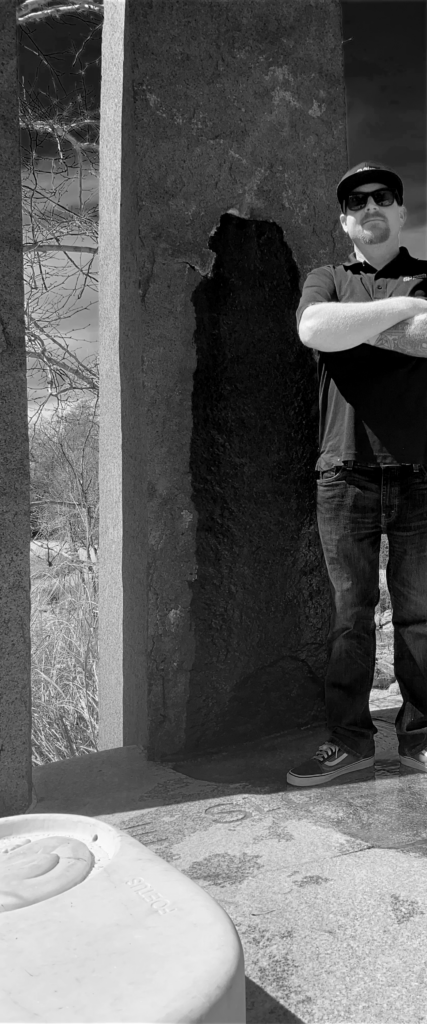
Heroin on Aisle 5
Gordon’s addiction didn’t begin with street drugs, however, but with prescription drugs. This was before the crackdown by the FDA—when doctors were prescribing pills for anything and everything, either real or imagined. “Respectable” citizens who had serious-to-terminal illnesses would sell their own prescription drugs. It seems counterintuitive, but despite facing their own mortality, they didn’t seem to hesitate to help destroy other people’s lives.
“I knew this lady who had terminal cancer and she was getting prescribed ‘oxys’ by multiple doctors for very high milligrams,” recalls Gordon. “And she would sell me her prescribed pain medication.”
Legal users like Gordon’s cancer patient offered a steady supply of drugs, and Gordon was right there with his shopping cart going down the aisles and picking off the merchandise to resell on the streets. But then the boom was lowered. “Soon they stopped making oxys to where they could be injected and smoked and that’s when heroin came along. And it hit the streets…hard!” exclaims Gordon.
Heroin, being cheap, was a windfall to dealers, though by then Gordon wasn’t selling the hard stuff, but rather buying, initially using the profits from selling weed to fund his now full-blown addiction to heroin. “I went from being this person who was making money and partying to being a straight-up junkie,” says Gordon.
Persona Non Grata
Becoming a junkie with the proverbial monkey on his back wasn’t pleasant. And neither, according to Gordon, was he. His reputation was growing, and it wasn’t exactly the kind that was going to win him the Shasta County “Citizen of the Year” award.
“I became a terrible person in my community…I was stealing and doing whatever I could to support that habit,” laments Gordon. “Eventually, I became homeless, and I started stealing from stores. I was doing it all…anything to support my habit.”
As for “dear ol’ ma” … she was back at home praying and crying her eyes out over her son’s errant ways. Gordon knew what he was doing was breaking her heart, but clearly the demon drug had a more powerful hold than the ties that bind.
The whole “the thing I don’t want to do, I do,” dilemma expressed plaintively by the apostle Paul, is common to most mere mortals, but in the case of drug addiction, that hold is far more powerful—making those “mere mortals” capable of doing anything. And they do.
“The Monster You’ve Become”
Perhaps nothing demonstrates the impact of unchecked drug addiction more than the following chilling words spoken by the presiding judge during the sentencing portion of the recent Alex Murdaugh trial. Murdaugh, a once prominent South Carolina attorney, was given two life sentences for murdering his wife and son while high on opiates.
“It might not have been you. It might have been the monster you became when you took 15, 20, 30, 40, 50, 60 opioid pills. Maybe you become another person. I’ve seen that before. The person standing before me is not the person who committed the crime, though really, it is still the same individual.” – Judge Clifton Newman
Gordon Glynn was not yet a monster, but he was well on his way. He was also on his way to receiving the justice he deserved—a six-and-a-half-year prison sentence for crimes he committed to support his drug habit. Up until then, he was still just a California “no limits” teen who had sunk so low that he was living on the streets—in his case, by choice.
“I always had a place at my mom’s, but I had so much respect for her that I just didn’t want to,” says Gordon. “I’d show up at the house for a minute then I’d take off. All my world revolved around drugs, and that’s it.”
“I Can’t Do This Anymore”
Things went from bad to worse when Gordon added meth to the mix, combining heroin with methamphetamine: in essence, a “killer cocktail.” “There would be times when I would be up all night in a drug house—finally crashing after partying for days,” says Gordon. Multiple arrests soon followed, along with a string of warrants when he didn’t even bother to show up for court dates. His mother, still “wishin,’ a hopin’ and a prayin’ (with a lot more of the latter) would visit her son in jail—until the day he found himself facing a six- and-a-half year stretch in the penitentiary.
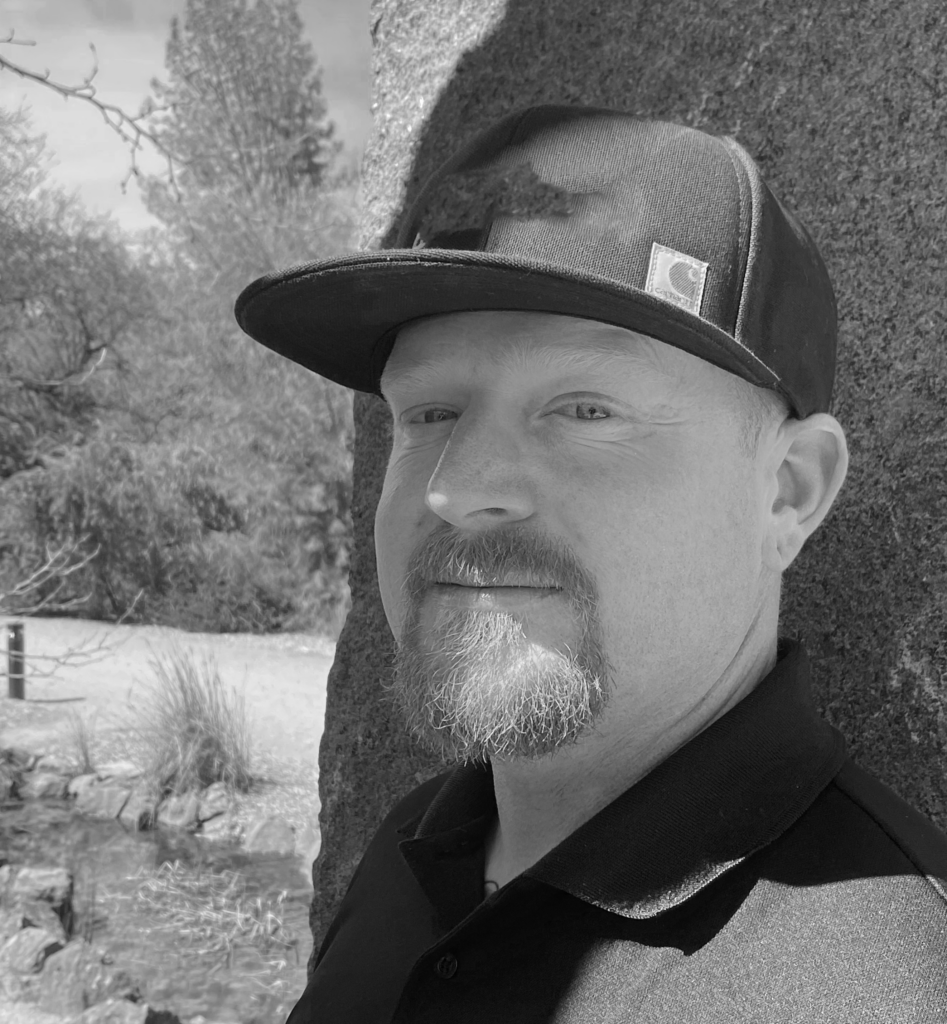
On the eve of his court date, after Gordon had tried and failed countless detox programs in California, his mother gave her son the ”I can’t do this anymore…you’re dead to me” sendoff. “It hurt, but I understood why she needed to do that,” says Gordon.
The next day in court, the judge, who knew Gordon better than anyone would want a judge to know them—at least inside of a courtroom—shocked him by saying, “Gordon, I should not be doing this for you, but for some reason, I feel like this time you’re going to get it done right. But here’s the consequences if you don’t do it…”
Those “consequences” would be serving the full six and a half years of his sentence in a state prison. No doubt, he had come a long way from the “cool” skateboarding teen in Central California who smoked a few joints to now facing time literally in “the joint.” His only option was placed before him: The New Life Recovery Program at the Good News Rescue Mission, or the penitentiary.
Last Chance Motel
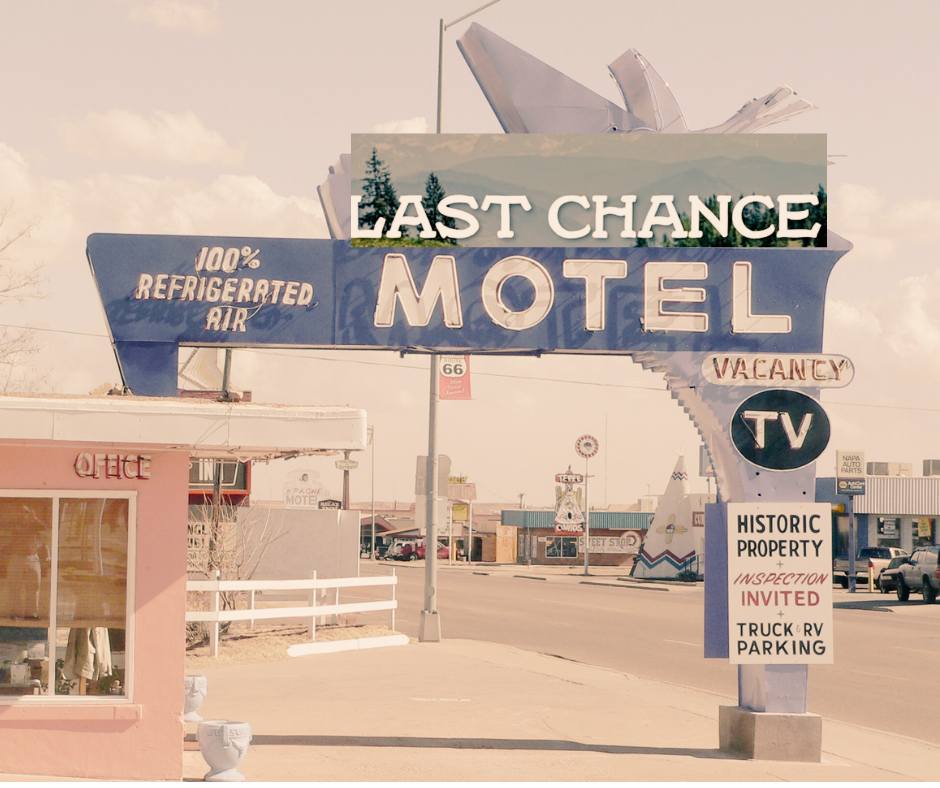
Realizing he had just been dropped off at the Last Chance Motel (sort to speak), Gordon, with a little help from his mom who had urged the powers that be at the Mission to not give her son any freedom, but to “please, please take him into the Program right away,” was moved up into New Life from pre-program immediately…without “passing go and without collecting $200.”
It was at New Life where Gordon would finally find the freedom he had always secretly longed for but which had seemed so elusive. Losing his dad to suicide, then growing up without structure in a subculture where “anything goes” as long as you’re inventing or perfecting skateboarding tricks, the odds seem stacked against him. But God has a way of beating the odds in hearts that are surrendered to Him.
As life would have it, it was while in recovery that Gordon did his greatest “trick” of all time—effectively doing a “1080” with a little help from his newfound friends. Unlike his previous buddies, aka enablers, his current compatriots didn’t help him just “get by”—living from fix to fix; instead, they helped connect Him to the God on High. Peers, mentors, New Life staff—God used them all. They were the real “social influencers” –people who would speak the truth and always had Gordon’s welfare in mind. This was diametrically opposed to the “ne’er-do-wells” he had hung out with all his life and who had only served to bring Gordon down by getting high or partying through the night.
One of the greatest influencers in his life was a staff member named Danny. “Danny ran the kitchen at the time,” says Gordon. “And we became good friends. I think everybody became good friends with Danny because he was just such an inspiring person. Everybody could relate to him. He could come down to your level. He could help get you out of a funk. We would go and talk to him about whatever and when we didn’t feel comfortable—when we couldn’t necessarily talk with our counselors, he was the go-to guy. And I’m so grateful for people like him that God put in my life.”
Danny wasn’t the only peer-mentor. There were other guys in the program who encouraged him—men like fellow students Rudy Saenz and Adam Schwartz. Then there were the life-changing programs he went through like Genesis and Malachi Dads. For the latter, it amazes him to this day that these volunteers were willing to give of their time to pour into his life and his fellow students. “I never really had anyone do that and that just blew me away,” says Gordon.
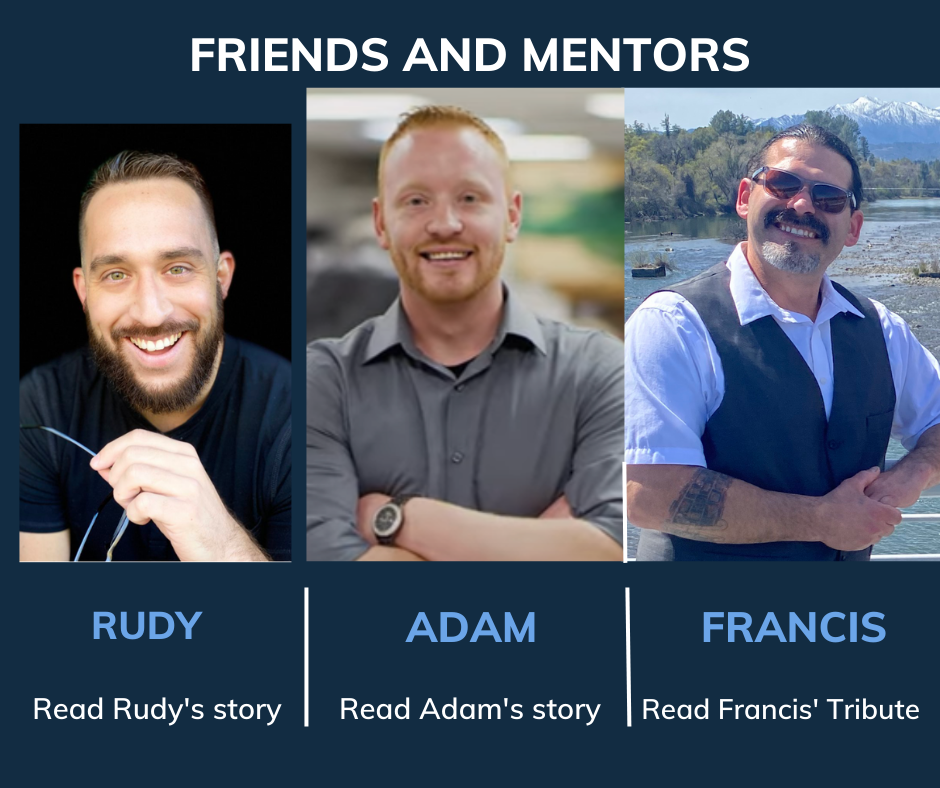
READ RUDY’S STORY READ ADAM’S STORY READ FRANCIS’ TRIBUTE TO GORDON
“You know what? I’m doing this!”
None of it was easy, however. Working the program pushed against everything he had thought was “freedom”—which was basically doing what he wanted, when he wanted and how he wanted. “It was really hard for me, but I did it,” recalls Danny. “ I didn’t leave anything out. At that point I was like, you know what? I’m doing this! And I’m gonna do it to the fullest.”
And that’s exactly what he did. In going against the grain—in embracing structure over a “do your own thing” philosophy, there was the expected, if considerably delayed, growing pains. He had finally learned to face, then process, the pain of a young boy losing his father. There was also the pain of regret for all the choices he made that had hurt others—including his mother…and himself. But in facing that pain, the healing came. God was there…in the midst of it all.
“It wasn’t just that I was in a so-called ‘faith-based’ recovery program with all the rules and regs to keep you in line,” says Gordon. “It was the constant presence of the Lord who was always there for me,” says Gordon. “And I’m pretty sure my mother had been praying for years for just that kind of transformative experience for me…one that would penetrate deep and keep me on the straight and narrow.”
Today, Gordon is doing very well, very well indeed. He owns his own successful plumbing business—thanks in large part to a man named Francis Flores, a caring member of the business community who took him under his wing while Gordon was in fifth phase of the program. He saw something special in Gordon and took a gamble. Soon he was teaching Gordon everything he knew about plumbing…and life. They remain close friends today. (Read Francis’ glowing tribute to Gordon.)
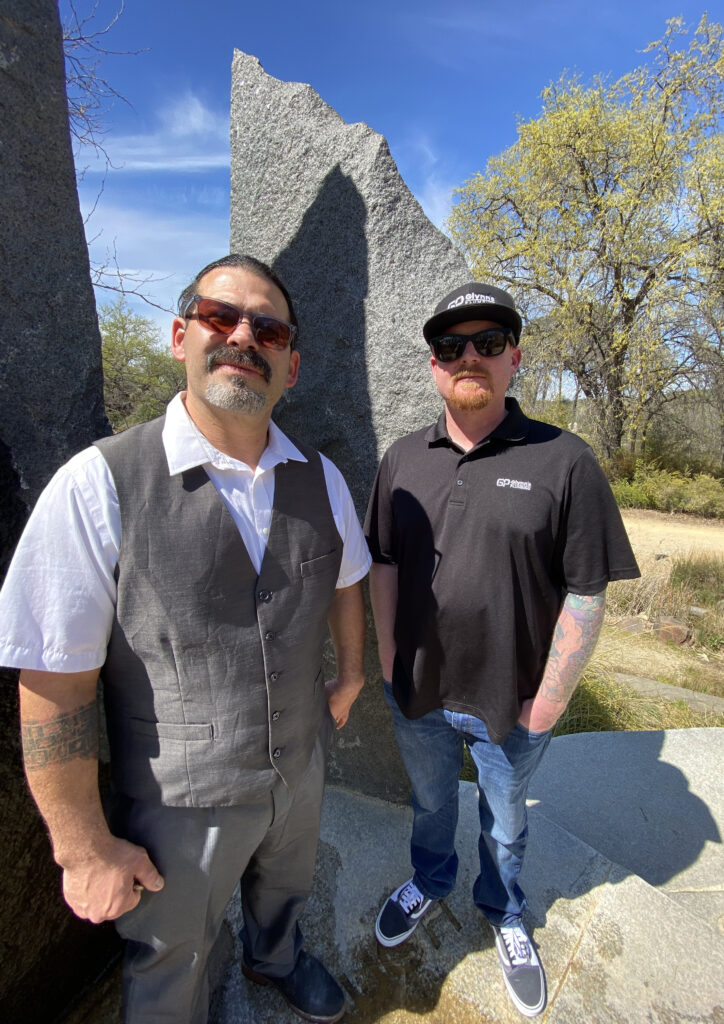
Gordon also found the love of his life, though he freely admits that initial encounter did not go well. “It was our first date and I was flat-out frightened,” recalls Gordon. “So, instead of walking up to the front door, I just sat in the car and just texted her that I was there. “Not surprisingly, she didn’t like that one bit, and the rest of the date was a bust.”
Fortunately, during a chance encounter days later, Gordon was able to redeem himself with the girl who would soon become his wife. It was worth the wait. “She’s my rock,” says Gordon.
Pentecostal Prayers, Sticking it Out, and a Winning Hand
The pusher turned plumber does have a few parting words—and countless people to thank. The first is some advice for all the current program students. “Just stick it out. You know, stick it out because if you persevere and not just go through the motions, it’s gonna change your life. But you have to put in the time and work…you have to do your part.”
Second, is the donors—to all those who “blindly” sow seeds into lives like a gambler betting he’ll get that winning hand, Gordon gives his undying gratitude. “The Mission changed my life. There’s just no question. I wouldn’t have been able to do what I’ve done or be where I am today without them.”
To his mom, that “good praying Pentecostal lady” he has no words—just all the love in his heart expressed through grateful tears. “She planted the seeds, prayed fervently and never gave up—even though for her own sanity she needed to take a break from me and my mess for awhile,” says Gordon. “But now she has her son back. What can be better than that?” – Jenni Keast
READ FRANCIS’ GLOWING TRIBUTE TO GORDON
###

